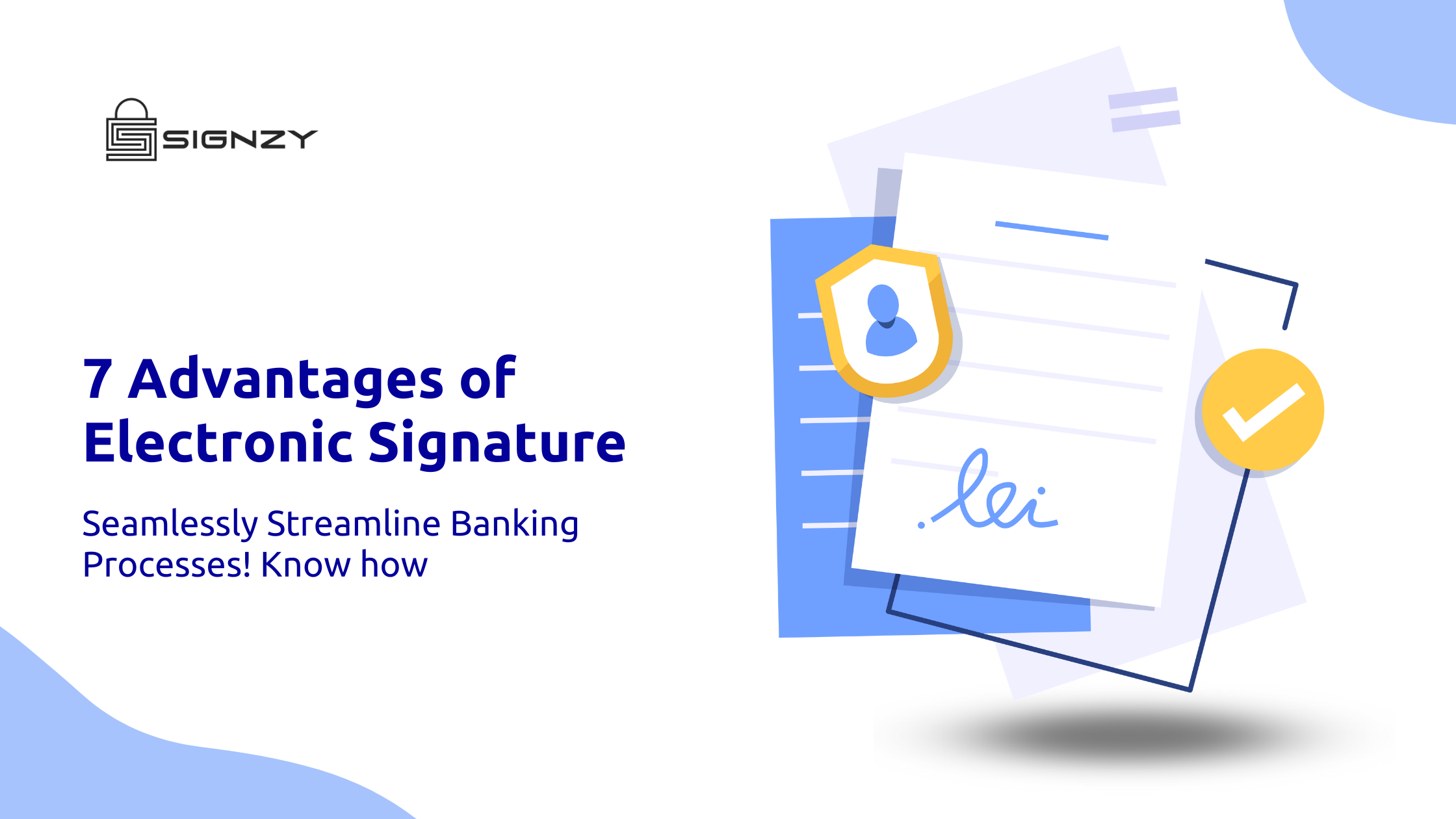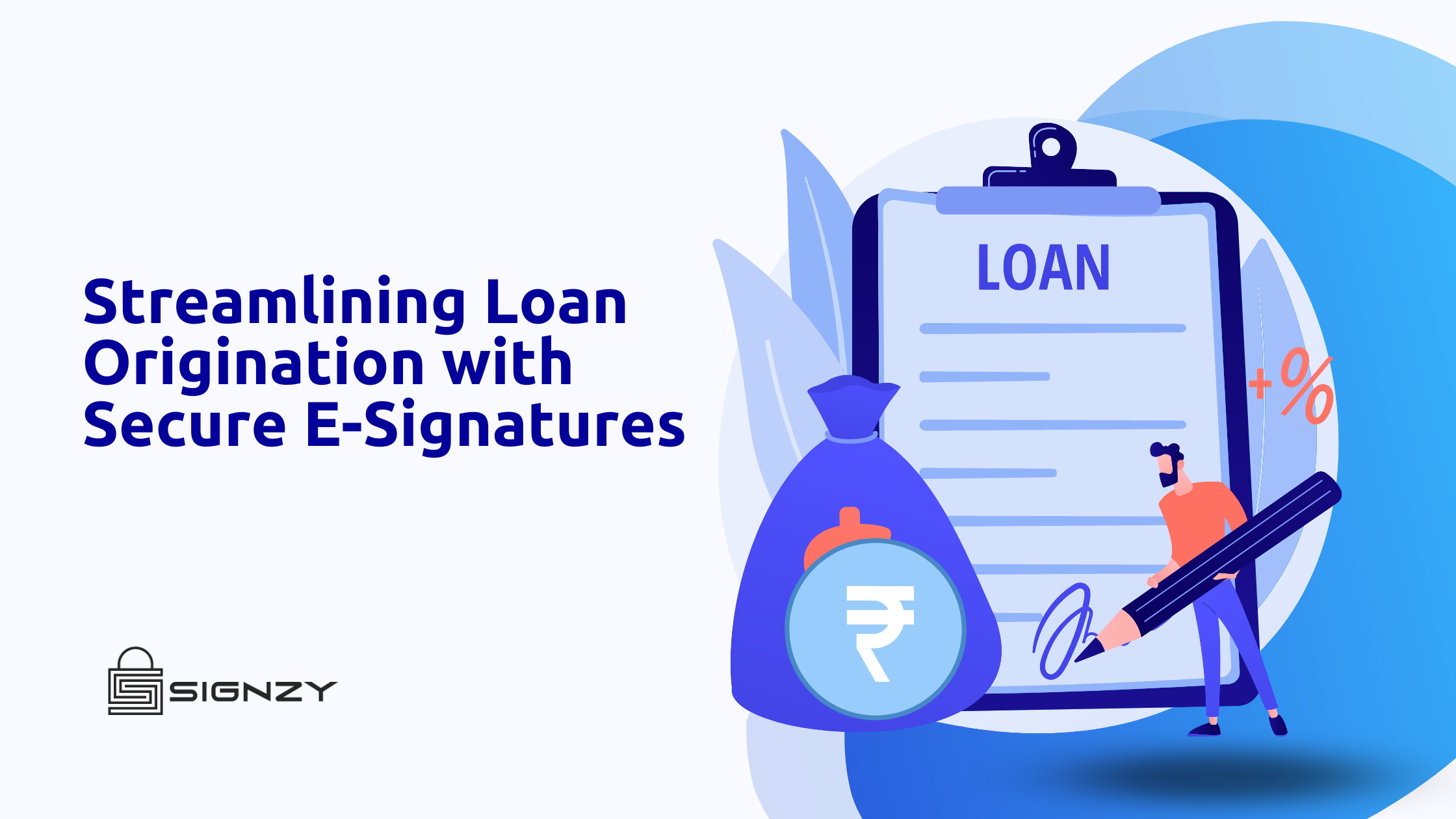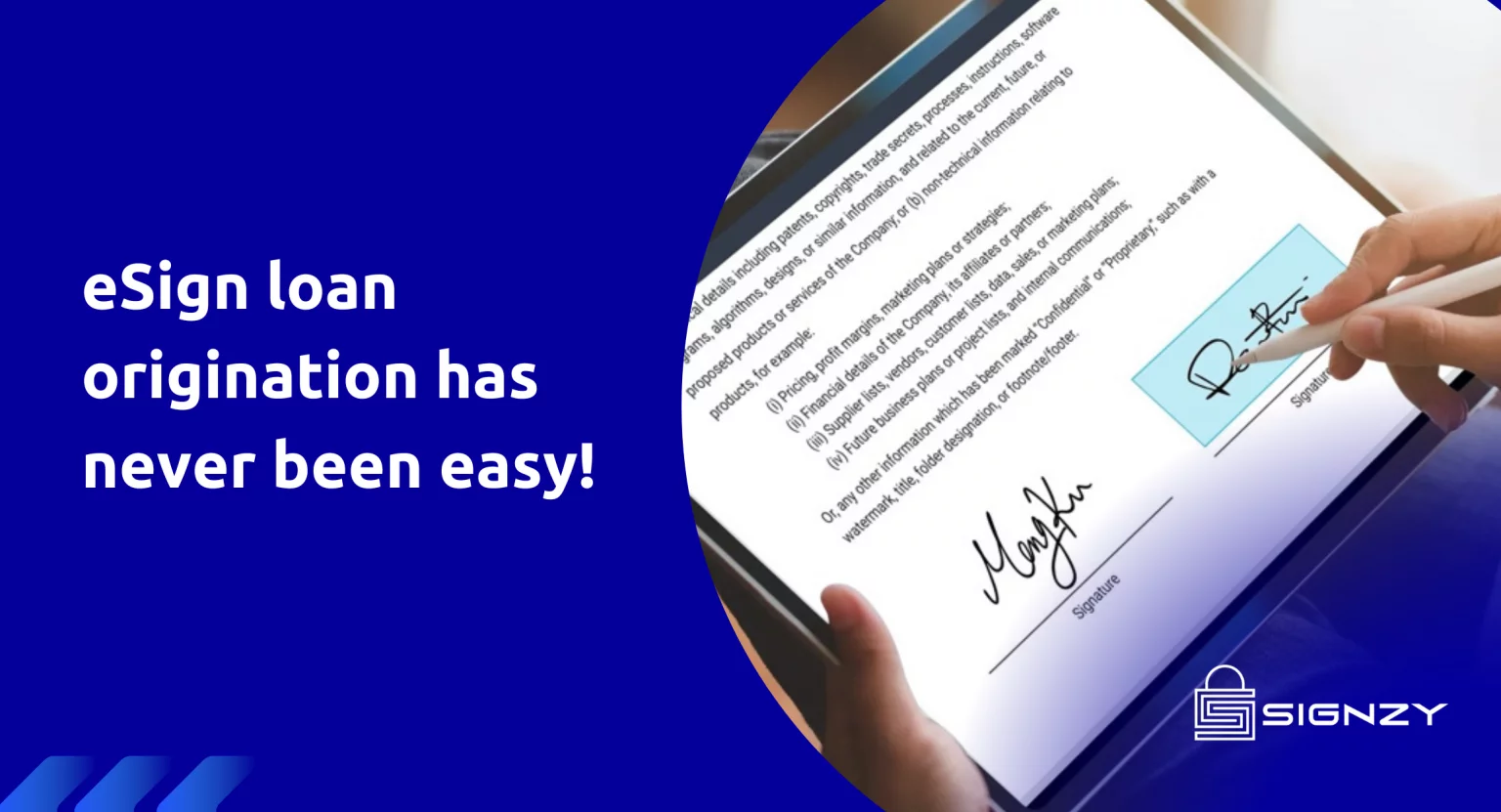Are your customers tired of endless paperwork and lengthy approval processes when it comes to banking transactions? Look no further than electronic signature! Implementing digital signatures can streamline your banking processes and provide numerous benefits for both customers and financial institutions alike. In this blog post, we’ll explore the top seven advantages of using electronic signatures in the world of finance. Get ready to revolutionize the way you handle financial transactions!
What are Electronic Signature?
An electronic signature, also known as an e-signature, is a digital version of a handwritten signature that is used to execute documents and agreements electronically. In the banking industry, electronic signatures are often used to open bank accounts, sign loan documents, and authorize fund transfers.
There are many advantages of using electronic signatures in banking. Electronic signatures are more efficient than traditional paper-based signatures because they can be completed faster and do not require physical documents to be mailed back and forth. In addition, electronic signatures are more secure than paper-based signatures because they cannot be forged or tampered with.
Another advantage of using electronic signatures is that they enable banks to go green by reducing the need for paper documents. By using electronic signatures, banks can save money on printing and postage costs, as well as reduce their environmental impact.
Advantages of Electronic Signature for Banking Processes
There are many advantages of electronic signatures for banking processes. Perhaps most notably, electronic signatures can help to speed up the banking process by eliminating the need for paper-based signatures. This can save time for both bank employees and customers alike. In addition, electronic signatures can also help to improve security and compliance with banking regulations. By using an electronic signature solution, banks can ensure that all documents are properly signed and authenticated before being processed. This can help to prevent fraud and errors and can make it easier to track documents throughout the banking process. Electronic signatures can provide a number of advantages for both banks and their customers.
- Enhanced customer experience: Customers today expect a convenient, streamlined experience when they interact with their bank or financial institution. Electronic signatures make it possible to complete transactions faster and with fewer steps, which can lead to happier customers.
- Regulatory Compliance: The banking industry is highly regulated, and compliance is essential. Electronic signatures provide a secure way to capture all the required information and ensure that it is stored safely and properly. This can help reduce the risk of fines or other penalties for non-compliance.
In India, e-signs are compliant with the following rules:
- Section 3(1)(a), 3(2) and 4 of the IT Act
- Information Technology (Certifying Authorities) Rules, 2000
- Information Technology (Use of Electronic Signatures in Government and Public Services) Rules, 2011
- Improved efficiency: Traditional paper-based processes can be time-consuming and error-prone. Electronic signatures eliminate the need for printing, faxing, scanning, and mailing documents, which can save both time and money.
- Greater security: Electronic signatures are tamper-proof and cannot be forged, making them much more secure than traditional handwritten signatures. This can give peace of mind to both banks and their customers.
- Streamlined Document Signature Process: The electronic signature process is much simpler and more efficient than the traditional paper-based process. With electronic signatures, you can easily sign documents electronically without having to print them out and sign them manually. This saves time and makes it easy to keep track of your documents. In addition, electronic signatures are more secure than traditional signatures because they cannot be forged or tampered with.
- Increased Accuracy & Easier Auditing: When it comes to banking and financial processes, accuracy is of the utmost importance. Any mistake can have serious repercussions, so it’s vital that everything is done correctly the first time around. This is where electronic signatures come in handy. With an electronic signature, you can be sure that the document you’re signing is exactly what you intended to sign. There’s no room for error, and the entire process can be easily audited if necessary. This gives you peace of mind and helps to streamline the entire process.
- Greater Convenience & Faster Transactions: Electronic signatures offer a number of advantages over traditional paper-based signatures, which can help to streamline banking processes. They are more convenient for customers, as they can be completed from any location with an internet connection. This means that customers can complete transactions faster, without having to travel to a bank branch or post office.
Electronic Signature & KYC
Electronic signatures (eSignatures) and Know your customer (KYC) are two important tools that businesses can use to protect themselves from fraud and other risks.
eSignatures are a legally binding way to sign documents electronically. They can be used to sign contracts, agreements, and other essential documents. eSignatures can help businesses to save time and money, and they can also make it easier to do business with customers who are located in other countries.
KYC is a process that businesses use to verify the identity of their customers. This helps businesses to prevent fraud and to comply with regulations. KYC can be done through a variety of methods, including collecting personal information from customers, verifying their identity with government databases, and conducting background checks.
eSignatures and KYC can be used together to create a more secure and efficient business environment. By using eSignatures, businesses can reduce the risk of fraud and identity theft.
Signzy’s Solution
Signzy’s Unique AI-driven and customizable eSign Solution is designed for each of your needs. It allows you to sign the PDF with Aadhaar Based DSC E-Sign using NSDL integration! Not only this:
- With prime precision, our API will detect fraudsters as an OTP or biometric authentication is required for verification.
- Facilitates Legally Valid Signatures only.
- The signature certificate associated with your Aadhaar eSign is valid for 30 minutes only. Thereafter, the private key is destroyed to prevent misuse.
Conclusion
In the evolving landscape of the banking sector, electronic signatures stand out as a beacon of efficiency and security. The seven advantages we’ve explored underscore the transformative potential of e-signatures in redefining traditional banking workflows. By embracing this technology, banks can not only offer a more seamless and user-friendly experience to their clients but also fortify their operations against potential risks. As the digital era continues to shape the future of banking, integrating electronic signatures is no longer just an option—it’s an imperative. Institutions that harness the power of e-signatures today are poised to lead the charge in tomorrow’s digital banking frontier.





